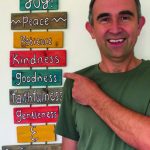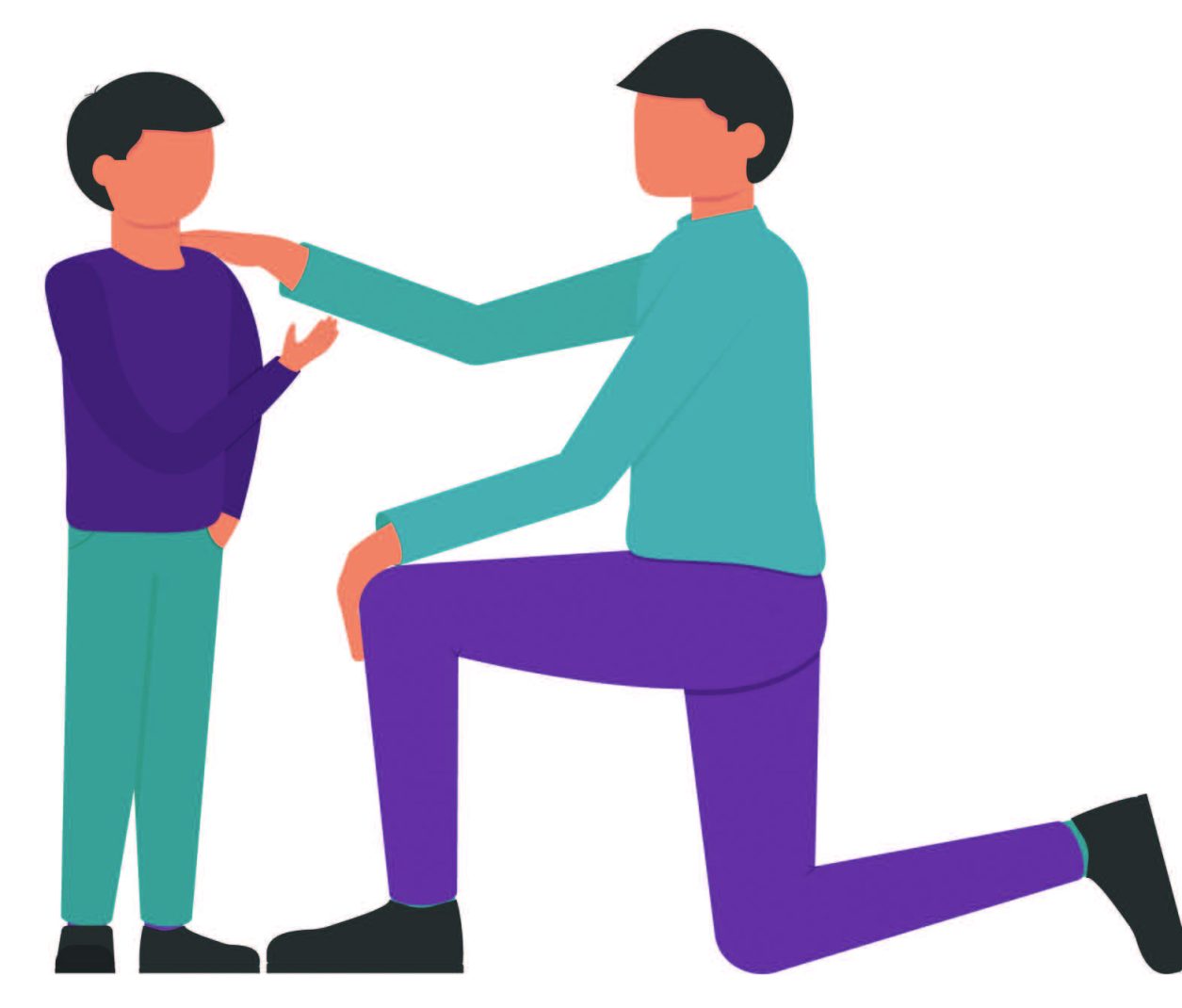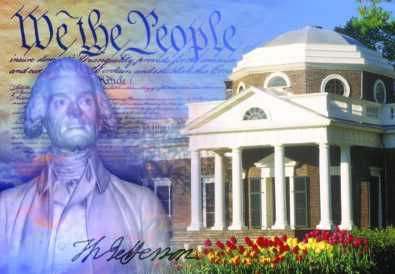Editor’s Note:
The following did not arrive in time for our June/July “Men’s” Issue. While being “father-centric,” this essay nonetheless offers wonderful “lessons” for children and parents alike.
I’ve reflected quite a bit on what I wanted this year for my Father’s Day present. I wanted my four kids to acknowledge that they really understand why the most critical part of my job is to sometimes say a hard “no!” I have three girls, 24, 22, 15, and an 11-year-old boy. The message to each is the same (in an age-appropriate way). Why?
If there is one thing all ancient wisdom teaches us, it’s that a truly good life is possible only with balance. Creating balance demands that each of us say “yes” to some and “no” to other things in life. To achieve life balance, we must make choices. Even not choosing is making a choice (voting for status quo). The gift of making choices is considered by all great cultures, traditions, and religions to be at the very root of what it means to be human. The ability to make reasoned choices is bestowed on humans alone. This distinguishes us from all our other relations on this planet – animals, plants, and everything else.
In any given situation, how can you make the best choice for the greatest good of all? Wisdom to choose well requires more than the simple mental understanding of words, concepts, and definitions like choice, balance, respect, reciprocity, empathy, altruism, and other great virtues. Wisdom also requires skills. Unfortunately, skills aren’t taught by words alone. Skills are best taught through experience, practice, trial, improvement, failure, and tests. Having a skill means being proficient in doing a specific activity well and reliably.
A pro tennis player is a good example. Professional athletes have reliable proficiency at their sport and can perform it well repeatedly. All this to say that, as a father, my most important job is to pass to my children the skill to make good choices. In turn, they will have the best chance of achieving balance in their lives. It’s then easy to conclude that the wisdom skill of making good choices must involve the ability to say (and hear) “no!”
Do as I do
All fathers know from their own experience that simply saying something to your kids and expecting them to do it has about the same odds as it did when we ourselves were kids – small to none. Modeling the desired behavior holds real lessons. Every time I say “no” to my kids, not as a whim, automatic reaction, or to correct not fair, but when I’ve thought about it and feel it in my gut … then I am teaching them a key wisdom skill. For the benefit of teaching this skill, I am willing to put up with whining, reactions, debates, hatred, and even some disrespect in the name of learning (but within boundaries of course).
It takes two to tango
Every generation complains about the next generation it spawns: “Ugh, the kids today;” there’s no respect for their elders, hardheadedness, awful taste in music, dress, and hairstyles; and, of course, making bad choices that will catch up to them eventually. Fathers today are no different. My grandfather didn’t have TVs growing up. My dad didn’t have computers. I didn’t have smartphones nor TikTok. So, what?! However, what we all share is that we will pass to the next generation a world that is more complex than the one we lived in. I can’t give my kids advice on social media etiquette and ultra-woke language nuances, but I can pass on the advice that was passed on to me from time immemorial. This advice is cross-cultural across continents, ages, and languages. These are the core wisdom skills humans share.
One thing I will do (beyond just enjoying silly cards with old Hallmark Dad jokes nobody tells in real life) is to talk to my kids about reducing the emotional cost for me to say, “no.”
We’ll talk about that first. We’ll talk about my job as father, which is to:
• Be helpful and expect self-sufficiency,
• Be friendly but not a friend,
• Be in service, distinct from being a servant,
• Be empathetic without being a pushover, and most importantly,
• Be loving but willing to say, “no!”
What I want from my family in return is an agreement. Now that the youngest one is 11, he is a part of this story too. I am doing my job as a father, and part of their jobs is to participate. They will take personal responsibility for their own lives, happiness, and abundance. I recognize this will happen slowly and more skills will evolve over time as they practice wisdom and become proficient. They won’t have the same sources of guidance and same experiences that I did, but they have much to rely on. Their life is not tabula rasa (clean slate). If every generation had to invent all its own wisdom from scratch, we’d still be scratching each other’s backs for lice.
Even if I don’t get it about TikTok, I do very much get the meaning of respect, choice, abundance, reciprocity, resilience, joy, and humor as well as my ancestors did 10,000 years ago. To have any hope of a good life, my kids better get it too. I hope they build on those skills. So cut me some slack this year kiddos, and occasionally just say, “OK, Dad. Will do.”
I will let you know how it goes.
 Dr. Elvir Causevic, Esq. is a rebel entrepreneur and wisdom activist. He’s been a professor, engineer, exec, investment banker, people coach, and Earth lawyer, roaming the halls of the Ivy League, Wall Street, and Silicon Valley. After teaching at Yale and building three successful brain medical device companies, he now runs the boutique investment bank Tech+IP Capital in San Francisco, in parallel with UpEnd, a new school of living wisdoms. He is also a Board director of EarthLaw Center, as well as of WorkLife Law Center of University of California Hastings School of Law, and supports a number of environmental and Indigenous peoples’ causes. Find out about his next wisdom school course in September 2022 at UpEnd.com
Dr. Elvir Causevic, Esq. is a rebel entrepreneur and wisdom activist. He’s been a professor, engineer, exec, investment banker, people coach, and Earth lawyer, roaming the halls of the Ivy League, Wall Street, and Silicon Valley. After teaching at Yale and building three successful brain medical device companies, he now runs the boutique investment bank Tech+IP Capital in San Francisco, in parallel with UpEnd, a new school of living wisdoms. He is also a Board director of EarthLaw Center, as well as of WorkLife Law Center of University of California Hastings School of Law, and supports a number of environmental and Indigenous peoples’ causes. Find out about his next wisdom school course in September 2022 at UpEnd.com




















